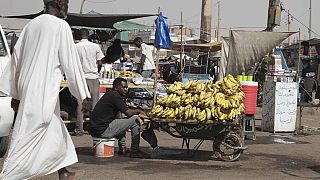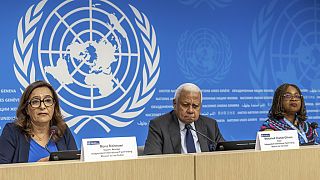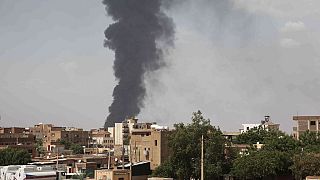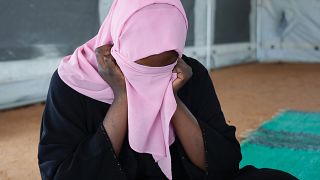Business Africa
Fighting has been raging in Sudan since 15 April 2023: as a result, the economy has ground to a halt, the financial system has collapsed and food and transport prices have soared.
In 2008, Sudan was pumping almost 500,000 barrels of oil a day. Today, the country produces just 60,000 barrels a day and finds itself plunged into a major economic crisis.
The South's independence in 2011 has divided its oil reserves by three and contracted its economy. Three decades of rule by Omar al-Bashir and the army's stranglehold on the country's resources have fuelled corruption and political and economic instability.
The power-sharing between generals Abdel Fattah Al Burhan and Hamdane Daglo finally repelled the support of international institutions following the second coup d'état in 2021.
What's more, the fighting that broke out on 15 April for strategic control of the country has taken its toll on an economy that was already in its death throes.
The guest on this episode of Business Africa, Peter Biar Ajak, post-doctoral fellow at Harvard Kennedy School, believes that the fighting must be stopped by achieving a ceasefire. But this must be done in a way that does not continue to legitimise the generals.
That has already been part of the problem, legitimising the generals, seeing them as statesmen instead of what they really are. For the most part, they are warlords who want to use military force to hold on to power, but also political power and economic power.
This should be done so that the war ends. As soon as the war is over, power must be transferred into civilian hands and the reforms that Sudan has avoided for all these years must be put in place.
Review of Sino-Congolese cooperation
China is the DRC's leading trading partner, with the volume of bilateral trade between the two countries reaching 21.898 billion dollars in 2022, an increase of 51.7% compared to 2021.
However, the management of the mining contract signed in 2008 between Beijing and Kinshasa is causing controversy. President Tshisekedi was recently in the Chinese capital, partly to give new impetus to this Sino-Congolese collaboration.
Benin, ecological coal preserves the environment
In Benin, around 100,000 hectares of forest are destroyed every year because of bushfires, clearing for agriculture and cutting trees for charcoal.
In 2018, the government launched an initiative to restore forest cover and protect against climate change. Roland Adjovi is trying to meet this challenge by making eco-friendly charcoal.





![Nigerian new policy reforms hits small businesses [Business Africa]](https://static.euronews.com/articles/stories/07/68/17/12/320x180_cmsv2_13bc8eb6-bcbd-5910-9929-7d8600ecfbc7-7681712.jpg)

![Can African countries create a new mining order? [Business Africa]](https://static.euronews.com/articles/stories/07/56/58/24/320x180_cmsv2_24380446-dfab-5a35-958a-0aaa5982c764-7565824.jpg)






01:40
Kenya cancels airport and energy deals with Adani group after the U.S. indicts the tycoon
Go to video
Fugitive Zambian MP Emmanuel Jay Banda arrested in Zimbabwe after three-month Manhunt
Go to video
Spain to offer residency and work permits to undocumented migrants
Go to video
Archbishop of Canterbury will end official duties in early January amid sex abuse scandal
Go to video
Congo opposition leaders call for protests against president's plan to change constitution
Go to video
At least 7 members of Nigerian security force missing after insurgents ambush convoy